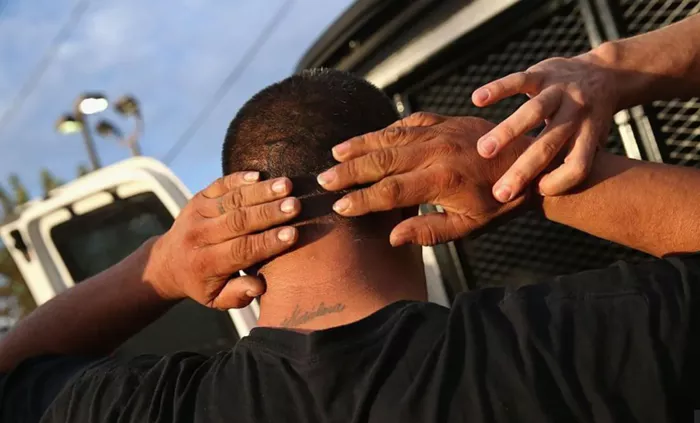Gabriela arrived in the United States over two decades ago, hiding under a pile of corn stalks in the trunk of a smuggler’s car. Now working as a housekeeper in Maryland, the Bolivian immigrant is one of the 13 million undocumented migrants living in the U.S. This group includes those who entered the country illegally, overstayed their visas, or have protected status to avoid deportation.
As the Trump administration vows to conduct mass deportations, undocumented immigrants like Gabriela are facing uncertainty about their future. In interviews, many expressed concern and discussed the issue in their communities, WhatsApp groups, and on social media.
Some, like Gabriela, are not worried. “I’m not scared at all,” she said. “That’s for criminals to worry about. I pay taxes, and I work.” She also questioned how authorities would even know about her status.
Trump has repeatedly promised to deport undocumented migrants starting from his first day back in office. However, nearly two weeks after his election victory, the specifics of his immigration enforcement plan remain unclear. He has insisted that cost won’t be an issue, but experts warn that such an operation would face significant financial and logistical hurdles.
Tom Homan, Trump’s newly appointed “border tsar” and former acting director of Immigration and Customs Enforcement (ICE), stated that the focus would be on deporting migrants who are national security or public safety threats. He also suggested that workplace raids, which the Biden administration had ended, could return.
In an interview with Fox News, Homan challenged the notion that enforcing immigration laws makes authorities the “bad guys.” He argued that removing public safety threats was a mandate from the American people.
Deportations are not new in the U.S. Under President Biden, more than 1.5 million people have been deported, and millions more were turned away at the border during the COVID-19 pandemic. During Obama’s presidency, nearly three million people were deported, focusing mainly on single men from Mexico.
Trump’s promised deportation plan, however, is broader and more aggressive, extending to operations far beyond the border. Officials are considering using the National Guard and military aircraft for detaining and deporting migrants. Trump’s running mate, JD Vance, suggested that the deportation process could begin with one million people.
While some undocumented migrants fear deportation, others see a potential benefit under a Trump presidency. Carlos, an undocumented Mexican in New York City, hopes that Trump’s economic policies could improve the job market. “Things may be tense right now, but worrying isn’t a solution,” he said. “The best thing to do is avoid problems and stay out of trouble.”
Not everyone shares this optimism. Eric Bautista, a 29-year-old “Dreamer” from California, benefits from a program that protects those who were brought to the U.S. illegally as children. Though he has lived in the U.S. for over 20 years, he worries about a future of uncertainty. “It feels like we’re at a turning point,” Bautista said, drawing parallels to past waves of nativism. “It’s just a future of fear and uncertainty for us.”
Advocates and legal experts warn that even undocumented migrants without criminal records could be caught up in aggressive enforcement actions. Aaron Reichlin-Melnick, policy director at the American Immigration Council, expects an increase in “collateral arrests,” where individuals living with criminal targets may also be detained.
Tom Homan recently said that decisions about deportation would be left to judges, even in cases where family members of the target are involved. This approach marks a significant shift from the Biden administration’s focus on public safety threats and rapid deportations from the border.
While Homan has dismissed the idea of sweeping neighborhood raids, stocks of companies involved in building detention facilities have surged since the election. These include GEO Group and CoreCivic, which are publicly traded prison firms.
Undocumented migrants contribute to many sectors of the U.S. economy, from agriculture to construction. Reichlin-Melnick warned that workplace raids could result in “indiscriminate” detentions. “When there are no priorities, they’ll go after whoever is the easiest target,” he said.
This uncertainty has left many immigrants fearful, especially those in mixed-status families. Brenda, a 37-year-old “Dreamer” in Texas, is protected from deportation, but her husband and mother are not. Though she doesn’t believe “good people” will be the first to be deported, she worries about being separated from her family. “It’s important for us to see our sons grow up,” she said. “Of course, the thought of being separated leaves one frightened.”
Related topics:
- How Federal Immigration Restrictions Will Slow Winnipeg’s Population Growth: Economic Outlook
- Immigrant Community Braces for Uncertainty as Trump Pledges Major Immigration Overhaul
- Trump Admin Plans Major Surge in Immigration Detention: ‘He Will Deliver’


